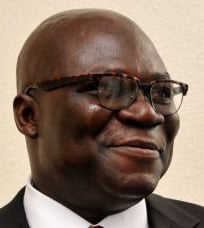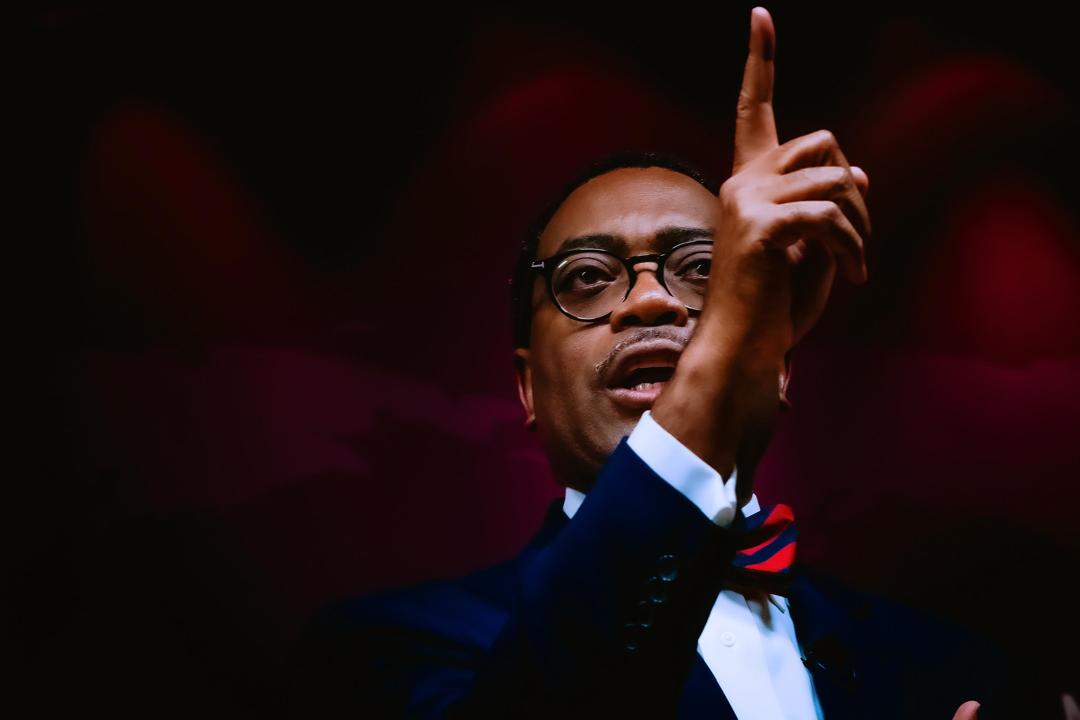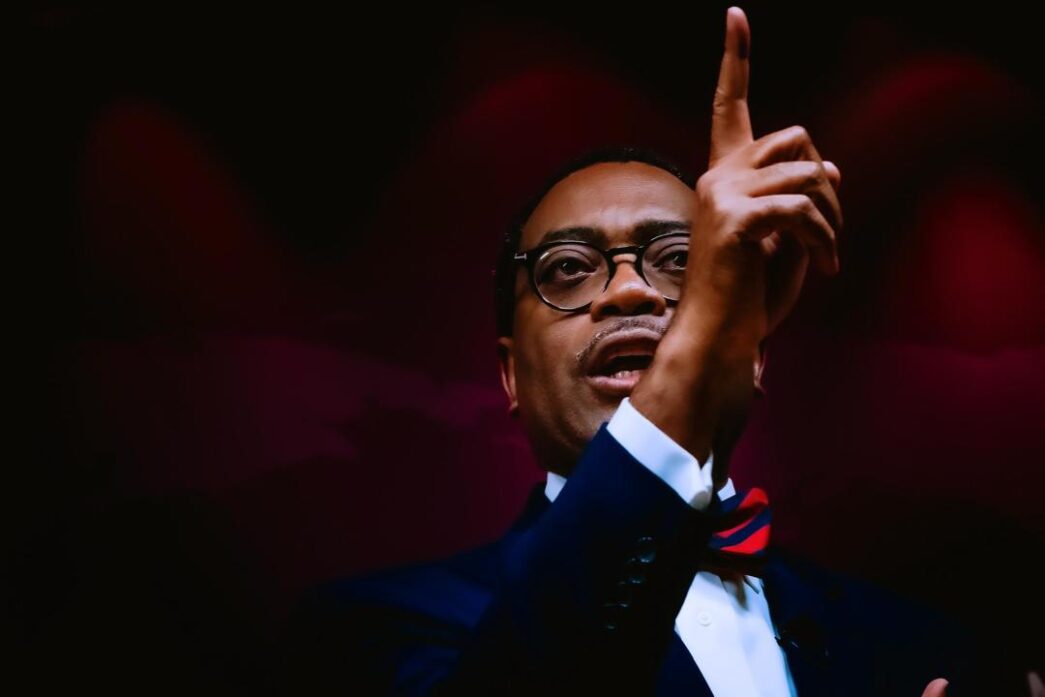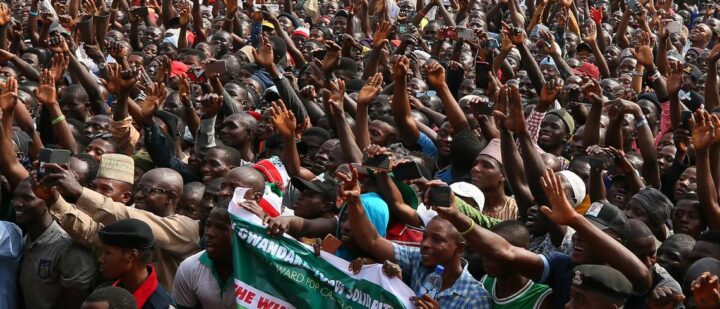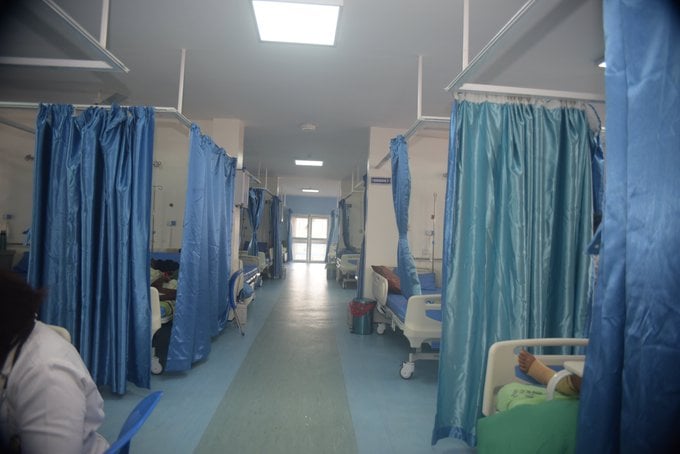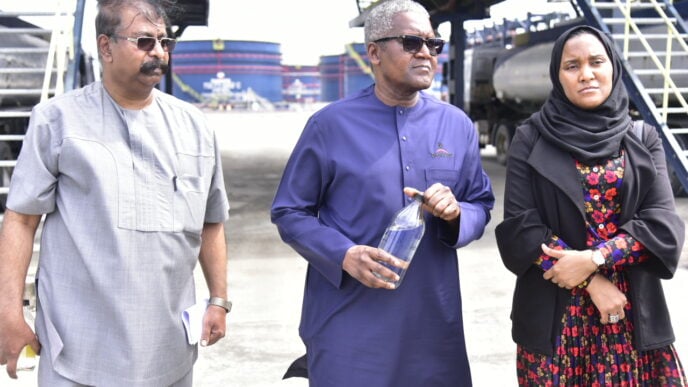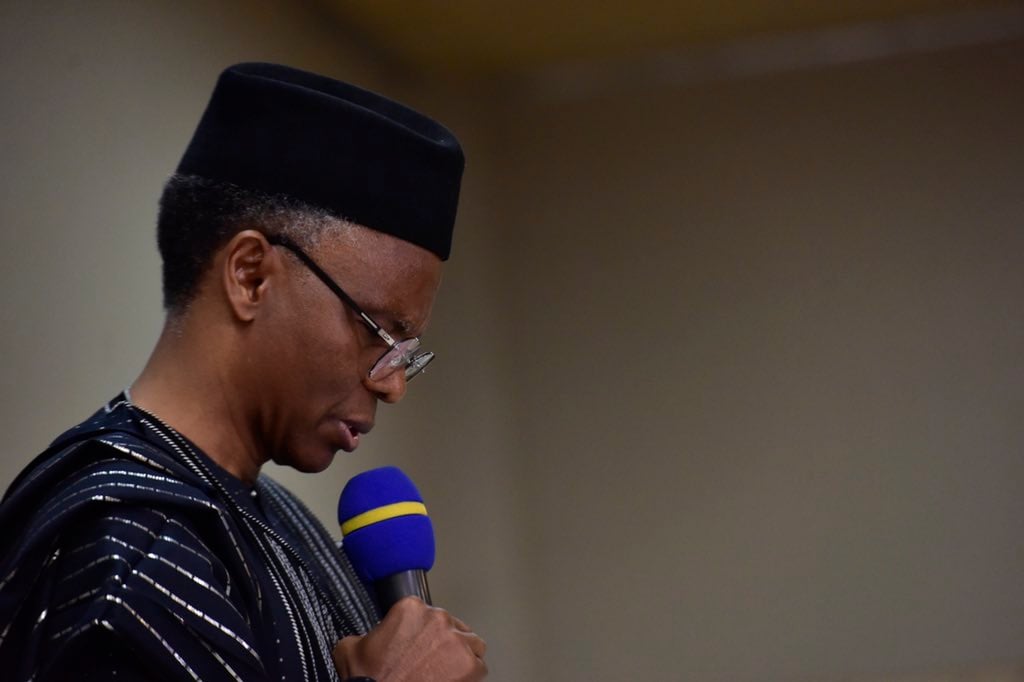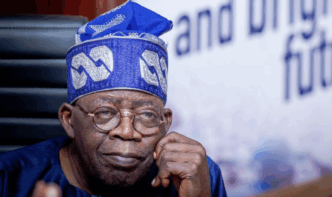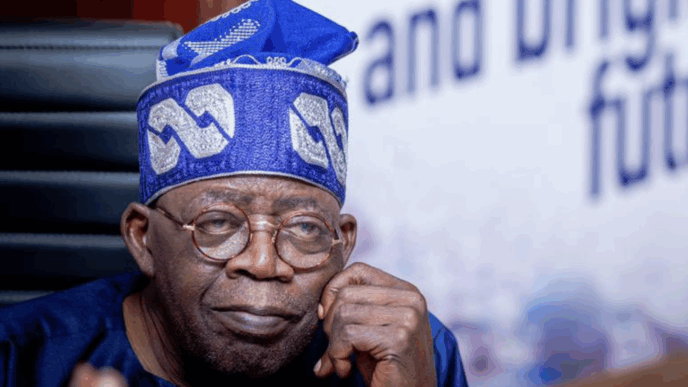On Sunday, August 31, Dr. Akinwumi Adesina, Nigeria’s former minister of agriculture and rural development (2011–2015), completed his maximum ten-year tenure (five years each per election) as president of the African Development Bank (AfDB), the premier development finance bank in Africa which effectively began operations in 1964, and more robustly on July 1, 1966, to promote integration, unity, growth and development, individually and collectively, in its member countries. The bank has a total of 81 members – 54 African independent countries as regional members, and 27 non-regional, non-African countries. Nigeria is the largest shareholder of the bank, with 9% of the entire shareholding.
When Dr. Adesina was elected as the 8th President of the Bank on May 18, 2015, and he assumed office in September 2015, he was the first Nigerian to be so elected in the history of the institution. Before him, there were Mamoun Beheiry (1967 -1970) from Sudan, Abdelwahab Labidi (1970-1976) from Tunisia, Kwame Donkor Fordwor (1976 -1979) from Ghana; Goodall Gondwe (acting President, 1979-1980) from Malawi; Willa D. Mung’Omba (1980-1985) from Zambia, Babacar Ndiaye (1985-1995) from Senegal, Omar Kabbaj (1995-2005) from Morocco; and Donald Kaberuka (2005-2015) from Rwanda. Adesina’s emergence as President of the AfDB in 2015 was a historic moment for Nigeria, and a defining moment for Adesina himself, personally and professionally. He was re-elected for a second 5-year term in office on August 27, 2020, with 100% of the votes cast, yet another remarkable achievement. He has now been succeeded, effective yesterday, September 1, 2025, by Dr. Sidi Ould Tah from Mauritania, who was elected on May 29, 2025. As part of the send-forth activities to mark his retirement, the Staff Council of the African Development Bank Group organised a farewell party for Dr. Adesina this past weekend in Abidjan, Côte d’Ivoire. On Saturday, August 30, there was a grand event at the Sofitel Hotel Ivoire attended by quite an impressive crowd. On Sunday, August 31, there was a Dinner by Friends of Dr. Adesina at the Ivoire Trade Centre, Cocody, Abidjan, to celebrate what was titled “A Decade of Excellence.”
I was invited to both events by the AfDB Group and Professor Oyebanji Oyelaran-Oyeyinka, Senior Special Adviser to the President of the AfDB Group and editor of a festschrift in two volumes, to honour, celebrate and memorialise Dr. Adesina’s personality, persona, vision, creativity, mission and the message embodied by his transformational leadership. My task was to review the two volumes, both running into over 670 pages viz Banji Oyelaran-Oyeyinka (ed). Akinwumi A. Adesina: The Man, Mission and Message: A Festschrift Vol 1. Lagos: Kachifo Ltd., 2025, xxx + 372 pp and Vol 2: Akinwumi A. Adesina: The Mandate: A Festschrift, 2025, xxviii +297 pp. Both volumes offer invaluable insights into the AfDB operations, challenges and achievements, as well as sustainable possibilities under Dr. Adesina’s watch and after. Saturday night was basically a night of tributes. The programme was introduced by Dr. Victor Oladokun, Senior Advisor to the AfDB President on Communication and Stakeholder Engagement and Ms. Marie Angele Toure, Managing Director, Media Advice Training, who both served as comperes. The first tribute by way of welcome remarks came from Mr. Foster Ofosu, Chairperson of the Staff Council of the African Development Bank. After him, Ms. Marie-Laure Akin-Olugbade, Senior Vice President, spoke at length on the subject: “A Journey of Leadership – Accomplishments and Contributions of Dr. President Akinwumi A. Adesina.” The editor subsequently provided “a short insight into the purpose and scope of the book and personal reflection on curating and contributing to the volume.” This was followed by short readings from three chapters from the two volumes by Dr. Oyebode Oyetunde, AfDB Executive Director representing Nigeria and Sao Tome and Principe, and Mr. Charles Boamah, former Senior Vice-President of the AFDB.
It was now my turn to review the books. I had prepared not a review, but a review essay of about 3,544 words, an extensive blend of my own reflections and an interrogation of the texts, too long to be reproduced here. In both volumes, we find tributes, recollections and reports by those who know Dr. Adesina closely, those who worked with him, those who served with him, those who worked under him – friends, associates, and colleagues over a period stretching as far as four decades back into the past. In one of the several forewords and congratulatory notes, President Olusegun Obasanjo says, “Dr. Adesina’s tenure has been nothing short of extraordinary – a testament to visionary leadership, unwavering commitment, and the pursuit of excellence in service to Africa” (Vol 1, p. ix). This assessment echoes throughout the two volumes of tributes. Adesina’s story is the story of how a man can make a difference and transform a continent. He is an African “Optimist-in-Chief”, a pan-Africanist who sees opportunities where others see challenges and difficulties, a diligent, hardworking leader who believes that Africa can and must lead its own development agenda with originality, faith, and authenticity. Where others saw doubts, Adesina saw opportunities for action and renewal.
Advertisement
Part II of Volume 1 is devoted to “The Message of Akinwumi A. Adesina”. This is basically a collection of speeches and lectures which he delivered at various occasions, starting with his inaugural speech as AfDB President, and others that followed on the key themes of his Presidency namely “Africa’s economic potential, Agricultural Transformation, Infrastructure and Industrialisation, Climate Change and Green Growth, Private Sector-led Growth, Youth Empowerment and Innovation, Debt Sustainability and Financial Reform” (Vol 1, p. 68). Reading Dr. Adesina in his own words strikes a deeper chord about his unrelenting optimism about Africa, and his belief that Africa is the last frontier, which only needs to unlock its possibilities for growth and integration.
The second festschrift, Volume 2, that is, focuses on The Mandate, the style and mode of execution of the Message articulated in Volume 1. In this collection of tributes, we are introduced in practical terms to how Dr. Adesina “walked the talk” with members of his implementation team – this being an account written by senior members of the AfDB Executive: Directors, Senior Vice Presidents, Vice Presidents, Directors-General, Governors, and former Governors. He is their team lead, the visionary who sets the standards, the task master who does not rely on excuses, but results, the perfectionist who motivates his team to think outside the box. Volume II presents Dr. Adesina to us in action. There is a general consensus running through this volume that Dr. Adesina is an extraordinary, transformational leader, a mentor, who likes to think big. The continental flavour of the accounts indicates the scope of AfDB’s work, covering the entire African continent from North to South, East to West, a truly African institution, a diverse blend of multiple personalities, disciplines, languages and expertise working to achieve a purpose which is: a new African narrative through a relentless pursuit of excellence. We find in these pages such expressions as “The Adesina Doctrine”, “The Disaster Triangle” – of extreme rural poverty, youth unemployment, and environmental degradation” (Vol. II, p.11) and the need to disrupt the cycle, or what Marie-Laure Akin-Olugbade describes as Adesina’s “The Baobab Approach” (p. 12).
While a programmatic summary of this would do no justice to the depth, width and fecundity of Adesina’s legacy, it may be necessary to remind the reader of just a few highlights. These include the High 5 Agenda, the ten-year mission statement that he announced on his first day in office as the AfDB President: Light Up and Power Africa. Feed Africa. Integrate Africa. Industrialise Africa. Improve the quality of life for the people of Africa. Adesina’s distinction lies in his single-minded devotion to this framework. The granular details are evident in the testimonies in this two-part collection, with emphasis on the Technologies for African Technological Transformation (TAAT), New Deal on Energy for Africa, the Desert to Power Initiative, Mission 300 by 2030, the $10 billion Crisis Response Facility for the COVID crisis, Africa 50, the expansion of AfDB’s shareholder base, the Africa Investment Forum (AIF), the African Digital Financial Inclusion Facility (ADFI), the AfDB’s Climate Action Window, the Youth Entrepreneurship Investment Bank (YEIB), and Affirmative Finance for Women in Africa (AFAWA). Under the leadership of PRST, or Triple A, as Dr. Adesina is also known by his team, the AfDB recorded the largest capital increase in its 61-year history, attracted global capital to Africa on an unprecedented scale, and rechanneled IMF Special Drawing Rights, with the institution earning recognition in 2021 as the Best Multilateral Financial Institution in the World. Dr. Akinwumi Adesina now steps down as AfDB President, leaving behind a strong impression as a people-oriented leader, known for his common touch and empathy among AfDB staff.
Advertisement
He has been recognised for his visionary and transformational leadership and his service to Africa and humanity by institutions in Africa and beyond. He has been honoured with about 17 honorary doctoral awards by universities all over the world in addition to Distinguished Alumnus Awards from the universities he attended, and where, in every instance, he was known for his outstanding academic performance. He is also a winner of several global awards including the YAMA prize (2007), the World Food Prize – the “Nobel for Agriculture” (2017), the Sunhak Peace Prize (2019), the Emeka Anyaoku Lifetime Achievement Award (2019), African of the Year (2019), Forbes Africa Person of the Year (2019), Obafemi Awolowo Prize for Leadership (2024, and the highest national honours of ten African countries. Not many before him have been so honoured, so widely, in appreciation of visionary leadership. These publications are at once a celebration and an iconisation of a leadership example, the best parting gifts that can be prepared for the subject. The Ooni of Ife calls Adesina an “Omoluabi”: among the Yoruba of South West Nigeria, Adesina’s ancestral background, to be called an “Omoluabi” is the highest form of compliment and recognition. In translation into English, the closest equivalent would be for a man to be described as “a true gentleman” and indeed, many contributors here do not hesitate to praise Dr. Adesina for his value-driven style of leadership.
There were goodwill messages – first, the presentation of a magazine publication titled Pride of Africa in honour of Dr. Akinwumi, unveiled by Ambassador Saul Frazer, MD/CEO of Global Properties and Ms. Maimuna Jallow, MD/CEO, African Agenda Network. Not surprisingly, Nigeria was well represented at the occasion, and a number of the dignitaries spoke glowingly about Dr. Adesina – Dr. Bright Okogu, former Director of Budget of Nigeria, former Executive Director at the AfDB, now Chief of Staff to the Director General of the WTO – Dr. Ngozi Okonjo-Iweala, Governor Caleb Muftwang of Plateau State, Governor Seyi Makinde of Oyo State, Deputy Governor of Ogun, Engr. Noimot Salako-Oyedele and former Vice President Yemi Osinbajo, who was there with his wife. Other notable Nigerians in attendance included the Minister of State for Finance, Dr. Doris Uzoka-Anite, Mr. Idris Mukhtar, and Chairman, Daily Times, Mr. Fidelis Anosike. Everyone spoke with pride about the honoree. There was also a Coffee Table Book, written by over 300 members of staff, titled “Making A Difference” unveiled by Mr. Solomon Mugera, AfDB Director of Communication and External Relations. The colourful, richly illustrated book tells the story of the Bank from 1964 – 2025, Adesina’s High 5s, Transformational Projects and Cross-Cutting Development issues. The rest of the night was devoted to Staff Awards ceremonies and Testimonies and a Staff Party, with “dance, dance, dance” that stretched far into the night.
On Sunday morning, my wife and I headed straight to the airport to get back to Lagos early, only to be told by the people at the Air Côte d’Ivoire counter that the flight to Lagos had been cancelled! We spent hours at the airport with no luck. It was the second time I would be stranded in Abidjan. The first time was in 1998, travelling from an African Leadership Forum Programme in Botswana, through Oliver Tambo Airport, Johannesburg, on Air Afrique, with a scheduled stopover in Abidjan. Just as was the case at the time, we ended up waiting in Abidjan till the following day. We were so upset that we simply went to bed. African and West African leaders continue to talk about integration and economic growth, but it is easier to travel to Europe than within Africa itself. Our borders remain “closed”. The people relate to each other with suspicion. As Dr. Adesina takes the curtain call, he leaves behind a challenge: Africa remains an unfinished business, there is still so much ahead about agricultural transformation, governance, debt management, public-private sector co-operation, climate action, integration, security and infrastructure. It is now up to his successors at the AfDB to ensure that his legacy is sustained on a “bigger, better, and bolder” scale.
Advertisement
Views expressed by contributors are strictly personal and not of TheCable.
